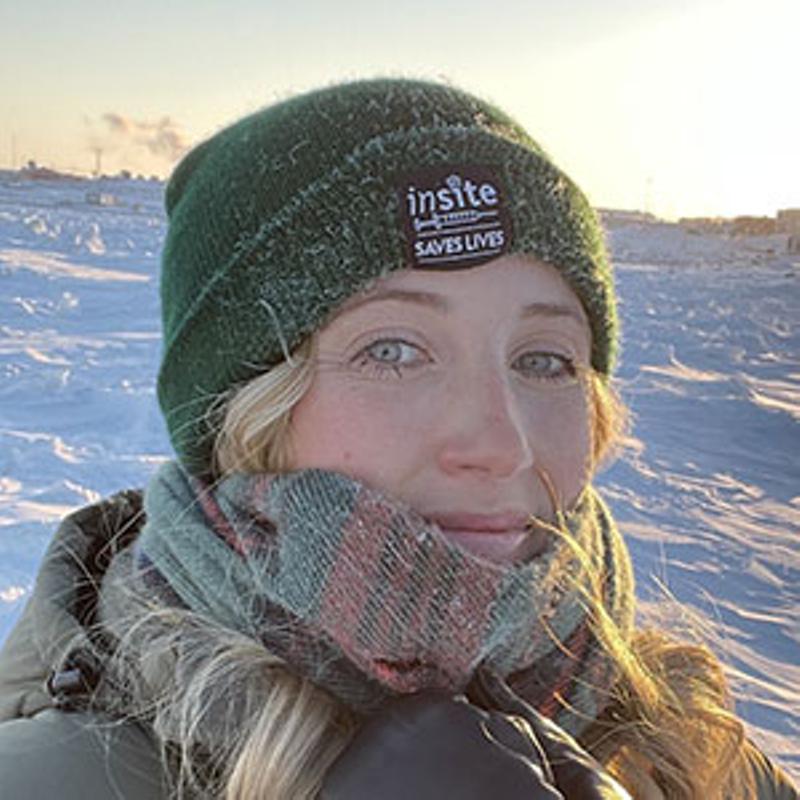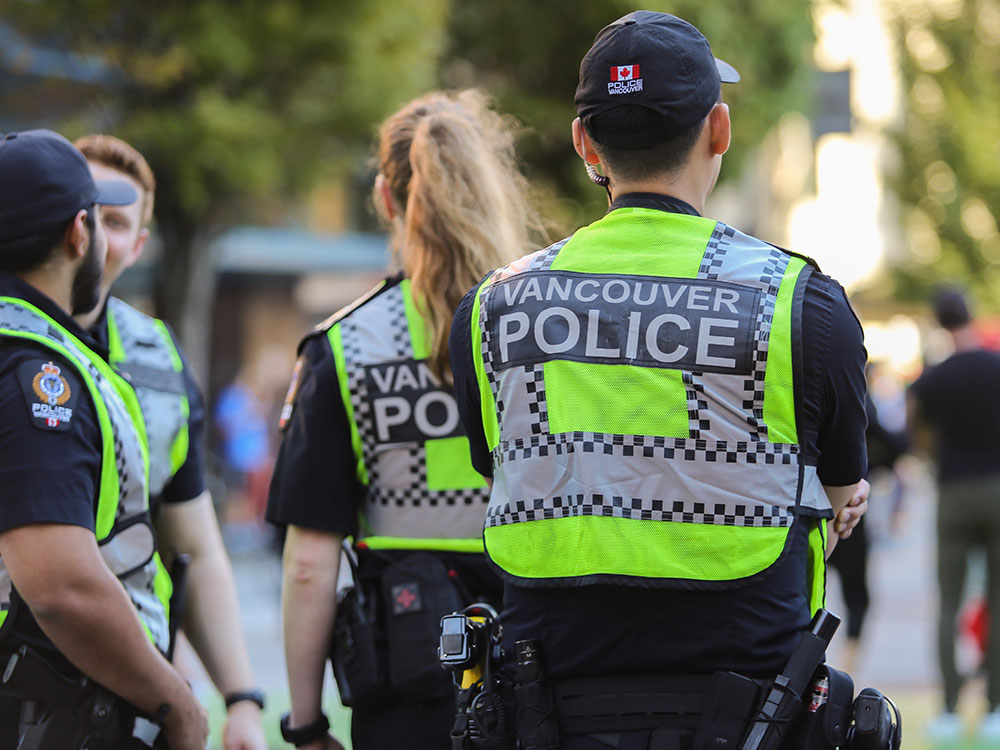ABC Vancouver’s pledge to hire 100 police officers and 100 nurses is best understood as a marketing ploy, rather than as policy that would positively impact mental health outcomes or public safety.
The pledge has been the main focus of ABC’s campaign. It’s the party featuring Ken Sim, one of two mayoral front-runners.
This is ABC’s plan to combat what they consider to be weakening public safety — a discourse that has dominated this election.
We trust that ABC, including Sim and council candidate Peter Meiszner, whose Twitter bio lists social media influencer as occupation, must know that this is strictly a campaign strategy.
Because it has no basis in real policy.
‘Mental Health Nurse’ is not a real designation
There are four nursing designations in British Columbia: licensed practical nurse, registered psychiatric nurse, registered nurse and nurse practitioner.
ABC has seemingly neglected to include the formal designations and titles in their big promise.
In some cases, this could be seen as effective political messaging.
But Sim’s resumé makes this more concerning.
Sim has a history in health care — mostly in privatized health care. He co-founded two health-related companies: Nurse Next Door and CareSource.
The latter is now defunct after an alleged sordid history of hazardous service and poor treatment of staff.
While Nurse Next Door does hire some registered nurses, duties are often downloaded onto positions the company calls “caregivers.” Despite the company’s title, caregivers play a key role in Nurse Next Door’s care model. Per job ads, Nurse Next Door is recruiting for these “caregiver” positions at $20 per hour, a woefully low wage.
This is not to downplay the vital, precarious and often racialized labour that caregivers provide, but to highlight how business people like Sim and influencers like Meiszner find ways to circumvent specific language to obscure the brand they’re promoting.
Are they going to hire registered or licensed nurses, or are they going to recruit underpaid mental health workers to send into crisis situations with little support, leaving no options but to call these new police officers as they demand budget increases?
The new hires would become part of the same group of police officers who recently endorsed ABC as a party.
The city does not hire nurses directly
If Sim and ABC plan on hiring nurses, it is unclear which service provider they intend to use as a platform to do so.
The city has no direct control over line-item budgets of any organization currently employing registered nurses, including the region’s provincially funded health authority, Vancouver Coastal Health, or smaller non-profits like Reach or Kílala Lelum community health centres.
The city has some limited influence over the lump sum budget of the Vancouver Police Department.
But the city cannot force the VPD to hire any nurses (nor the police officers they are proposing to hire, either).
In an interview with The Tyee, Sim alluded that the city would create a new branch of government that hires, employs, manages and directs the mandates of registered nurses — all for the cost of $20 million per year — before sharing the project with the province.
If this program plans on hiring 100 full-time registered nurses and/or registered psychiatric nurses as “mental health nurses,” on top of 100 new police officers, Sim may have failed to consider the cost of management, human resources and administrative staff, the cost of rent, maintaining a medical charting database, new equipment, IT, program development, communications and transportation costs.
If ABC plans on starting a new “mental health nurses” program at that cost, mental health workers will likely be filling the role just as underpaid caregivers have in Sim’s previous nursing projects.
Or maybe this proposal does not include full-time positions, but casual ones. They would also be short-term, temporary positions if Sim’s plan is to run this like a pilot project for the province to consider. In this case, who would want to take on these roles?
According to recent data, B.C. already has 4,265 vacant nursing positions.
There is a severe nursing shortage
Moral distress is one of many contributing factors to the adverse consequences of nursing work.
ABC’s own press release states that this part of their platform is rooted in an expansion to “Car 87/88,” a police program for mental health crisis intervention that partners officers with a registered nurse or registered psychiatric nurse from Vancouver Coastal Health’s access and assessment centre.
The VPD website is vague in describing Car 87/88’s range of assessment and interventions.
Based on our field experience, the Car 87/88 partnership’s main tool appears to be assessing whether an individual meets criterion for involuntary admission into the locked room of an institution, typically the psychiatric ward of a hospital, under the Mental Health Act. The province’s guide to enacting the Mental Health Act grants individual officers wide discretion in its application. Its use continues to increase, even without ABC's proposed staff expansion.
And while ABC’s platform calls the Car 87/88 program evidence-based, one would be hard-pressed to find a single evaluation of the program — not quite meeting the threshold for evidence-based practice.
These newly created nursing positions would have a strong proximity to Car 87/88 and involuntary admission to hospital for mental health care. Like other similar positions, this pushes up against the basic professional standards of registered nurses including collaborating with patients in their care. It is difficult to retain staff in these roles, even within established health organizations that are unionized and provide permanent job security.
As a point of interest, we are a social worker and a nurse. We both work on a Vancouver Coastal Health outreach team that struggles to retain five full-time, frontline nurses.
BC’s Mental Health Act is in an ethical crisis. ABC wants to expand it
B.C.’s Mental Health Act, a piece of provincial legislation that allows a person to be involuntarily admitted to hospital for mental health care if they meet specific critieria, is already mired in an ethical crisis.
The act was recently evaluated by the ombudsperson of British Columbia.
This report found that appropriate rights-based paperwork was completed in less than one-third of apprehensions. Coerced care apprehensions have risen under the act, arguably reactive measures to mental health crises, while the province’s mental health supports have become increasingly underfunded. Apprehensions under the act hit the 20,000 mark in 2016.
The Mental Health Act is misused with little oversight or accountability. It infringes on people’s autonomy, and in many cases causes more harm than good.
ABC has not been clear on how they will address these issues.
We find ABC’s pledge to be misleading, not rooted in the realities of health-care policy or best practice — and an infeasible promise for the city to keep.
It is a shameless campaign tactic playing on voters’ fears about public safety. It drives stigma by drawing on a narrative that mental health-related issues require a coercive response, something that is not typically helpful. Sim has called the city a “big business,” and states that if he can run it as such, “magical things are going to happen.”
Magical in terms of brand promotion, maybe — but not for the health and safety of the community. ![]()
Read more: Health, Municipal Elections 2022, Rights + Justice, Municipal Politics


















Tyee Commenting Guidelines
Comments that violate guidelines risk being deleted, and violations may result in a temporary or permanent user ban. Maintain the spirit of good conversation to stay in the discussion.
*Please note The Tyee is not a forum for spreading misinformation about COVID-19, denying its existence or minimizing its risk to public health.
Do:
Do not: